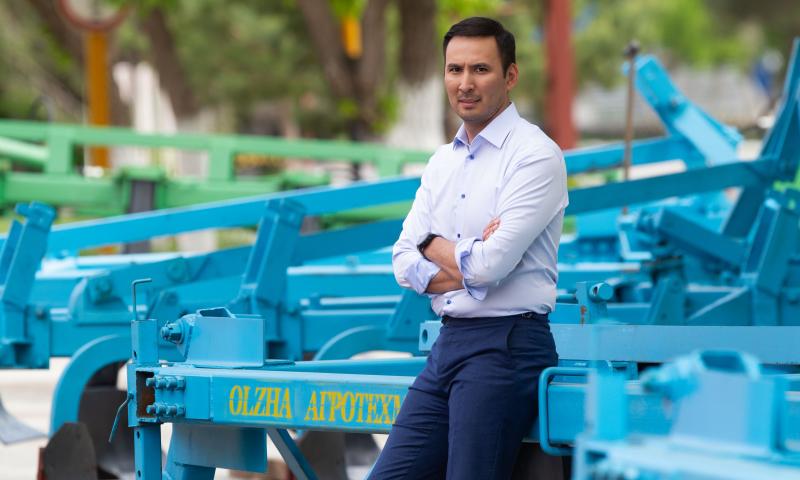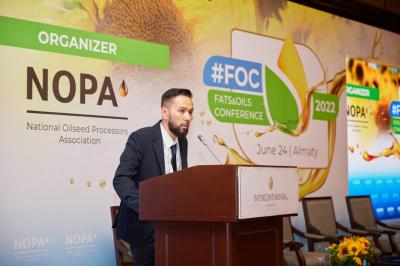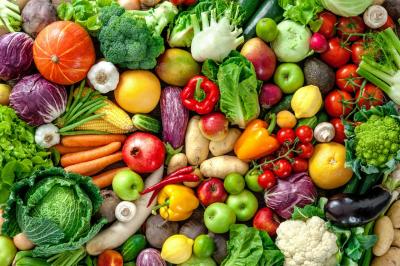
General Director of Kazakhstan's largest agro-industrial holding company " Olzha Agro " Aidarbek Khodzhanazarov shared with a journalist of World of NAN his thoughts on the development of agribusiness in the light of the message of the President.
- Aydarbek Asanovich, in your opinion, will the creation of a network of wholesale distribution centers solve the problem of rising food prices?
- Today they think that a wholesale distribution center is a panacea for farmers and city dwellers, where the first can sell goods and the second can buy them at a lower price. But who told you that the farmer himself personally wants to participate in the sale? His strength is in farming, not in standing behind the counter. If there is a middleman in the trade, there is a market reason for it. Then that middleman somehow finances the farmer during the harvest or planting campaign. In most cases, the farmer is unable to finance himself. And the intermediary gives him the fuel and lubricants or chemicals, and the farmers pay him back by selling the products. The intermediary performs the role that the farmer, the buyer and the supermarket do not want to take on. Therefore, if the market has so decreed and formed, it must be respected. That said, the artificial creation of the WDC will not lead to anything good. When a specific mass of farmers who want to supply goods personally will gather, then platforms for that will be formed in the market. But right now the farmer has no time to sell, he has no time to do it. I don't undertake to speak for everyone. Today there are individual farmers who have the whole chain from production to sale. But these are very few. Perhaps the government is taking a proactive stance on the creation of the WDCs. They hope to influence the direction of the market by creating these sites. But I don't think we should expect a significant reduction in the cost of goods.
- Should the government interfere in the pricing of agricultural products?
- First of all we must ask the question: why do we want to regulate prices? Because there are disadvantaged people who are not able to buy the necessary food. So let's work with them. But no! We should just hit the farmers over the head and say: don't raise your prices. How can we regulate the prices for agricultural products, while, for example, the cost of fertilizers has tripled, the cost of agricultural chemicals has also tripled, and with every devaluation it grows even more? There has been the introduction of utilization tax on the purchase of agricultural machinery, at 20%. In addition to this we are talking about an increase in minimum wages, respectively, wage increases, which also leads to an increase in the cost of the final product. We must work with the root cause. If the people of Kazakhstan do not have enough money to buy products, then the reason is low wages. Why do we have low wages? Because, conventionally speaking, in Kazakhstan labor is poorly paid. But let's work with the causes, why do we work with the consequence? The state should not regulate the prices of products, because it does not know my prime cost and obligations to the same shareholders, to whom I have to pay. Generally speaking, the initiative to regulate prices has a long-term negative effect on the entire economy. What investor would want to go into this sector? Who will want to engage in agriculture? That is why today there is an outflow of investments from the agro-industrial complex. It is because such an approach from the government completely undermines competition.
- What do you think about the draft law "On private subsidiary plots"?
- Support for private farms is excellent, but it will not give a serious boost to the economy. I do not think that the villagers will form the necessary volume for exports. And if they do, then how will they be able to control the veterinary? How will the state be able to control the slaughter, the technology of this private farmstead? What is an individual farm? It's just a yard, where there is no opportunity to prepare fodder properly and monitor the health of livestock. We should understand that farms will always give better quality goods, so we should not bet on the individual private farms as the foundation of our economy.
- K. Tokayev talked about reforming the veterinary system. What do you think really needs to be changed?
- I am not an expert in veterinary medicine. But I think this sector should be transferred into private hands, or we should start attracting foreign companies. So that the farmer could pay for services to a private firm, and they would be legally and financially responsible for carrying out certain manipulations. It is worth thinking about veterinary medicine from this perspective.
- The president demanded that the subsidy mechanisms be reviewed and stabilized. Do changes really need to be made here?
- All is not so bad in the subsidy system. What we really need to think about is the sources of funding for farmers. Today farmers have no sources for working capital and investment costs.
Let's say you want to buy a farm, but the bank won't give you the money because it needs guarantees or collateral. We should also think about district specialization. We need to encourage people to engage in activities that fit their conditions and are beneficial to the state and export. There are many economically viable crops that will bring in more money. We have to make the best possible use of every scrap of land and unlock its potential. I think regional specialization will give the right impetus, and then the state will be able to distribute subsidies more thoughtfully.
- The head of the country stressed the importance of increasing the efficiency of pasture use. How can this be achieved?
- Every year we have a growing ratio of the need for pastures in terms of hectares per head. If previously three hectares per head was enough, now we need seven hectares. Pastures are used spontaneously, they are very worn out and can not withstand the existing load. But instead of improving the quality of pastures, we want to expand their number. It appears to me: in order to have more forage, we need to improve the quality of pastures. This is better than fruitless promises to find new areas. And how to do it? To do this, we need to allocate a separate direction on subsidizing pasture seeding, or the state should take over this task. When we improve the quality of pastures, there will be no need in so many of them.
- Do you think the government understands the needs of farmers today?
- As for the agro-industrial complex, the message says everything in too broad a phrase. Maybe this was done on purpose, to make additions and clarifications in the future. Today the government has no understanding of the agricultural market. For example, the cancellation of export of sunflowers. At first I thought that the ban wanted to support domestic oil producers. But no: the ban also affected finished products. Moreover, they introduced it on September 1. We have no sunflower in September, its harvesting begins in the first half of October. What is the point of its prohibition, if there is no information about the yield and the volume, which will come to the economy? This shows the state's disconnection from reality, from the land.












































Обсуждение